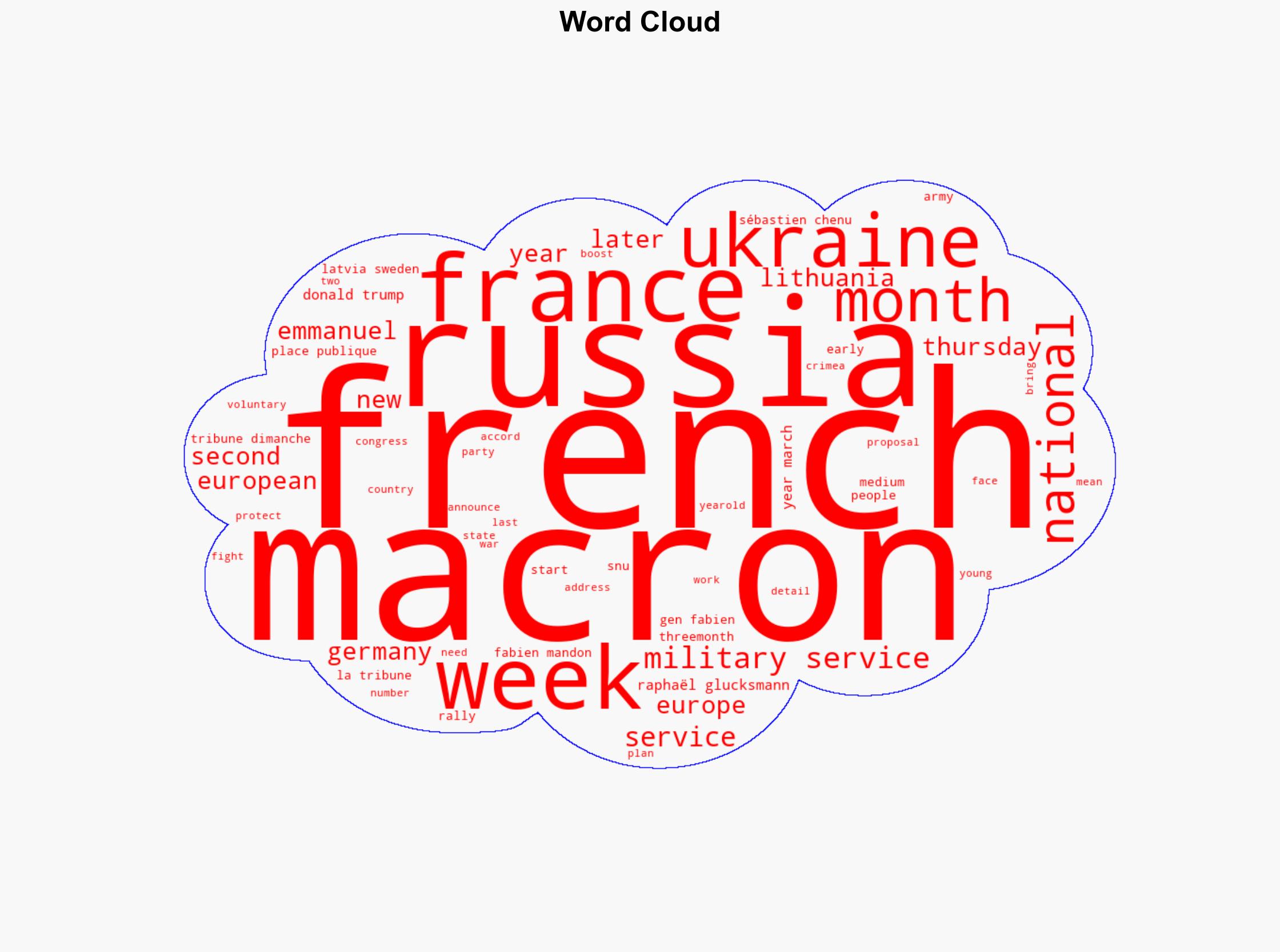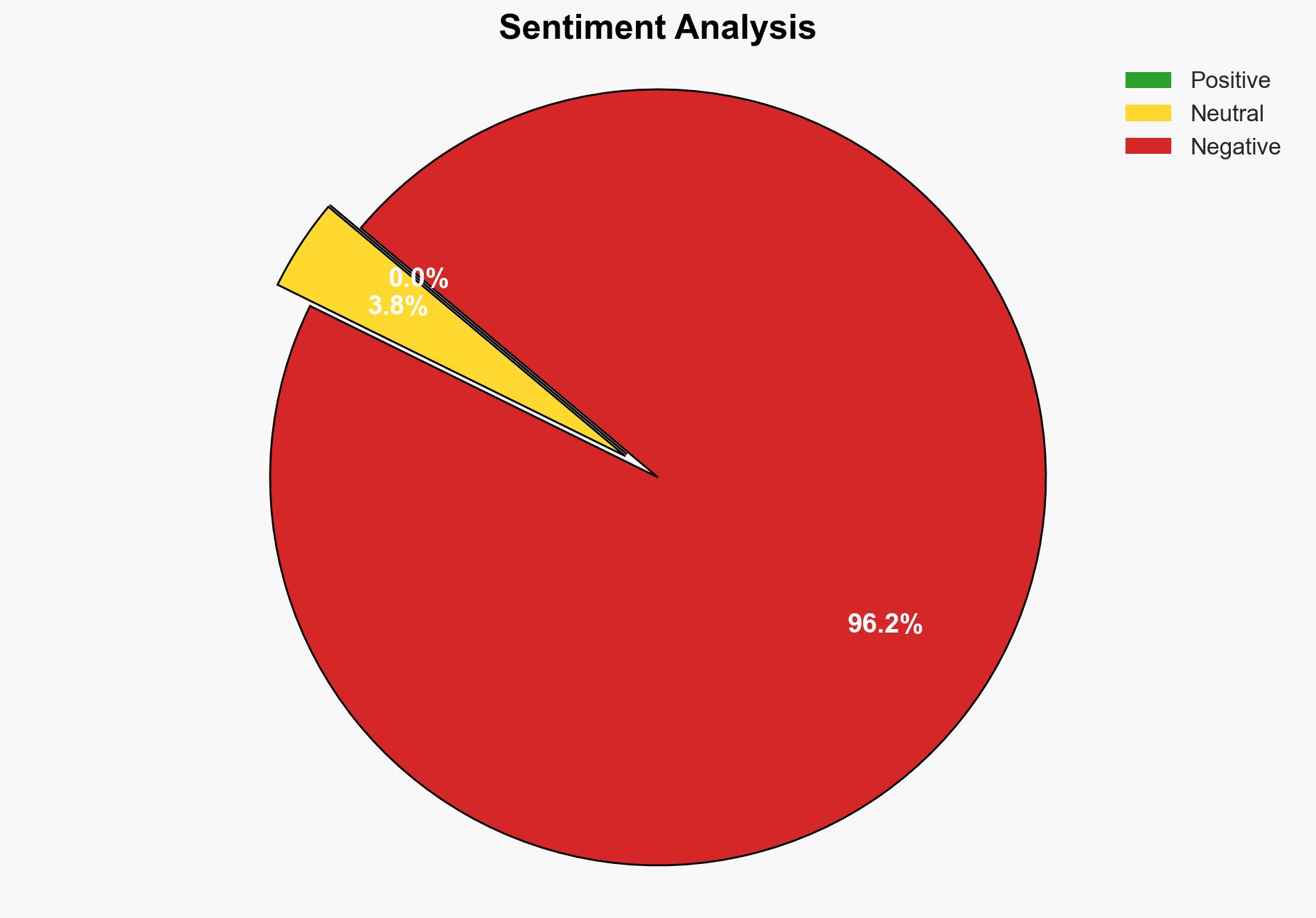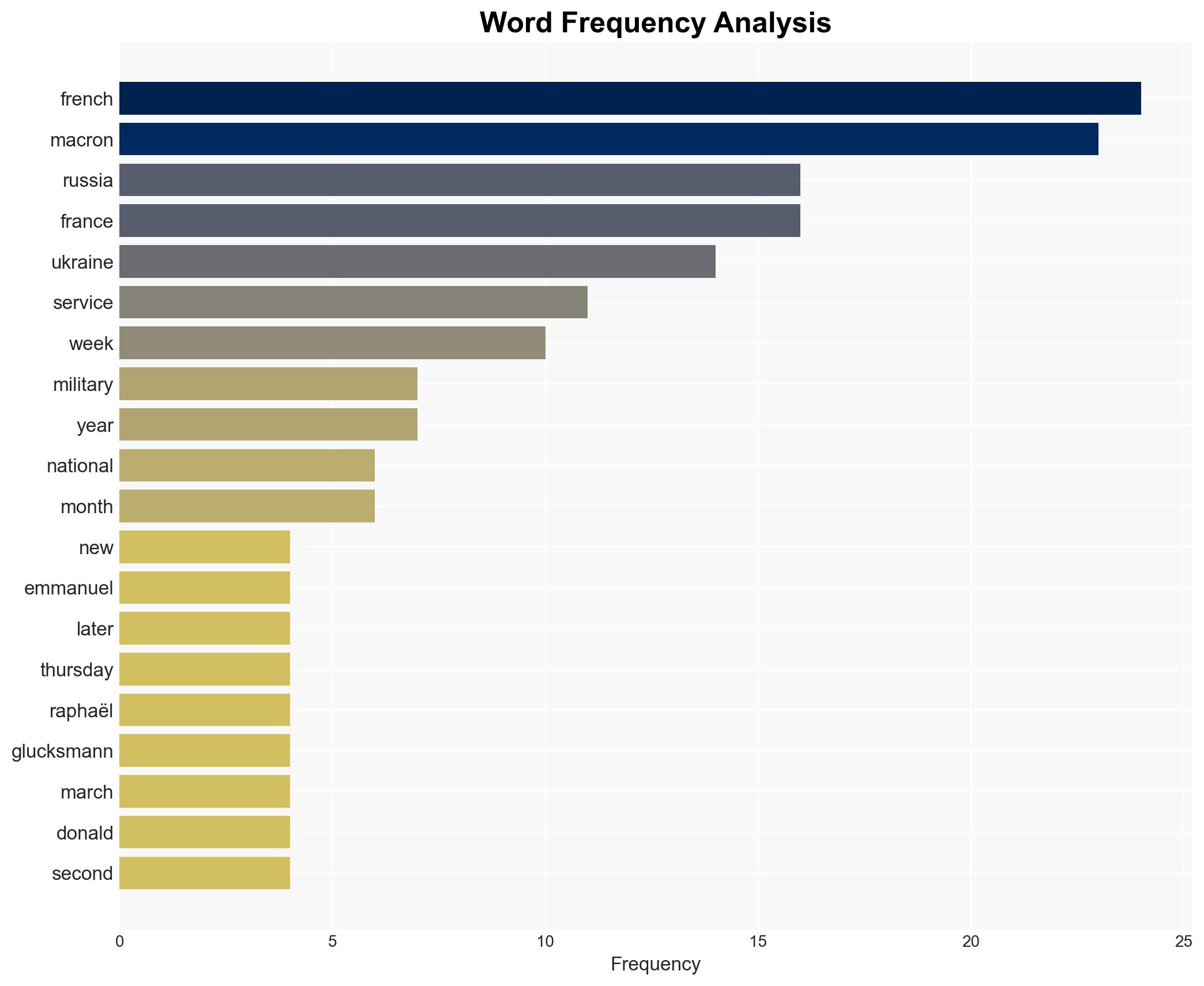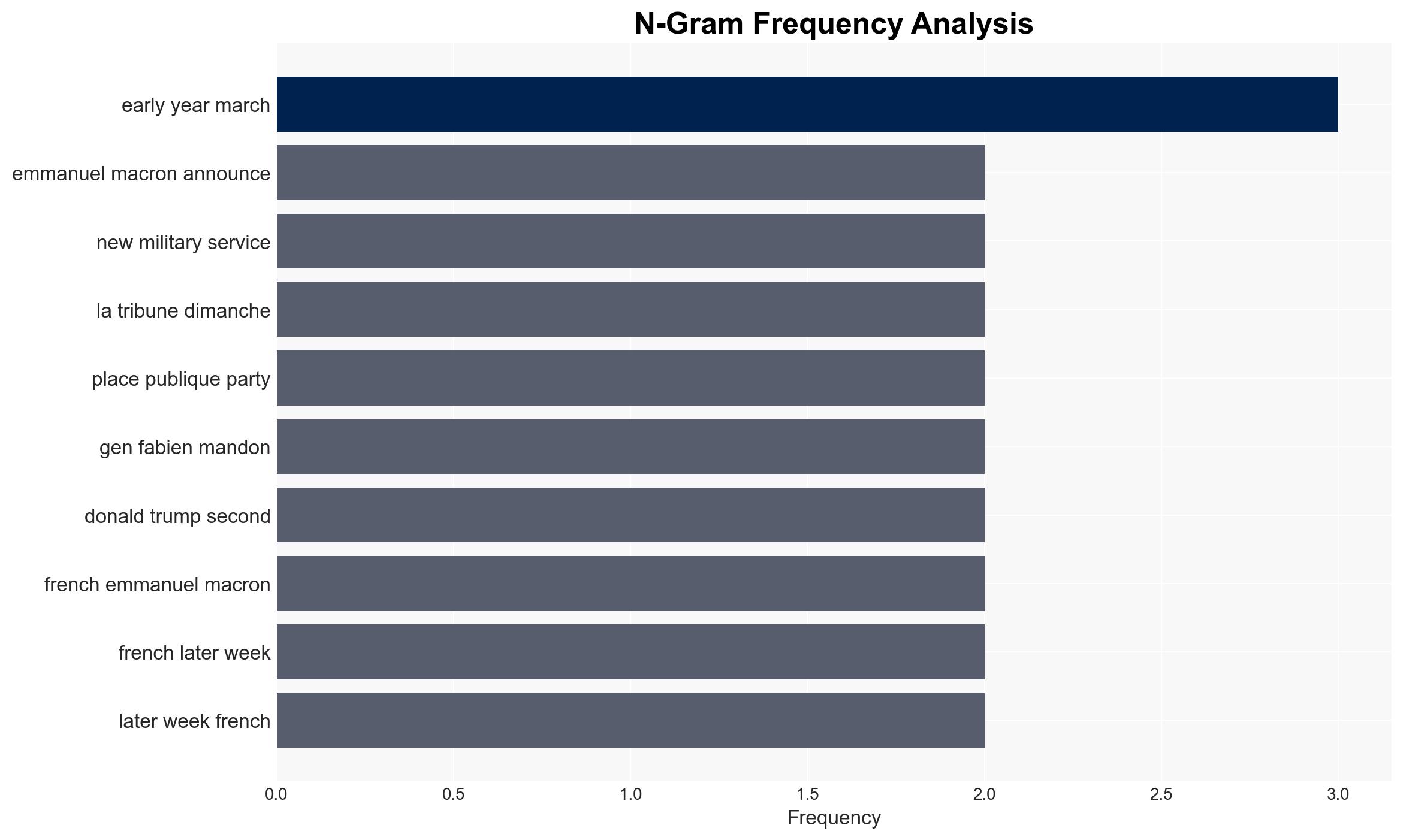Macron to present new French national service plan
Published on: 2025-11-25
AI-powered OSINT brief from verified open sources. Automated NLP signal extraction with human verification. See our Methodology and Why WorldWideWatchers.
Intelligence Report:
1. BLUF (Bottom Line Up Front)
President Emmanuel Macron’s proposal for a new French national service plan is likely aimed at bolstering national defense capabilities and fostering national unity. The most supported hypothesis is that the plan is a strategic response to perceived threats from Russia and a means to enhance France’s military readiness. Confidence level: Moderate. Recommended action: Monitor the plan’s development and public reception, and assess potential impacts on regional security dynamics.
2. Competing Hypotheses
Hypothesis 1: The new national service plan is primarily a response to geopolitical threats, particularly from Russia, aiming to increase military readiness and deterrence capabilities.
Hypothesis 2: The plan is mainly a domestic policy initiative designed to foster national cohesion and provide youth with civic engagement opportunities, with military readiness as a secondary goal.
Hypothesis 1 is more likely given the context of heightened tensions with Russia and similar moves by other European countries to enhance military capabilities. The emphasis on military service and Macron’s statements about protecting against power threats support this interpretation.
3. Key Assumptions and Red Flags
Assumptions: The plan will be implemented as described, and public support will be sufficient to sustain it. The geopolitical situation with Russia will remain tense, justifying increased military readiness.
Red Flags: Lack of detailed information about the plan raises uncertainty. Potential public opposition or political resistance could hinder implementation. Macron’s reassurance that the plan does not involve sending youth to Ukraine could indicate sensitivity to public perception and potential backlash.
4. Implications and Strategic Risks
The plan could lead to increased military capabilities, potentially altering regional power dynamics and prompting reactions from neighboring countries. Domestically, it could either strengthen national unity or provoke division if perceived as militarization. Economic implications include the costs of implementation and potential impacts on youth employment and education.
5. Recommendations and Outlook
- Monitor the development and public reception of the plan to gauge its feasibility and potential impacts.
- Engage in diplomatic dialogue with European allies to coordinate responses to regional security threats.
- Best-case scenario: The plan strengthens national defense and unity without significant opposition.
- Worst-case scenario: The plan faces strong public and political resistance, leading to social unrest and weakening Macron’s administration.
- Most-likely scenario: The plan is implemented with moderate adjustments, enhancing military readiness while facing some public debate.
6. Key Individuals and Entities
Emmanuel Macron, President of France; Gen Fabien Mandon, French Army Chief of Staff; Raphaël Glucksmann, Place Publique party; Sébastien Chenu, National Rally.
7. Thematic Tags
Structured Analytic Techniques Applied
- Cognitive Bias Stress Test: Expose and correct potential biases in assessments through red-teaming and structured challenge.
- Bayesian Scenario Modeling: Use probabilistic forecasting for conflict trajectories or escalation likelihood.
- Network Influence Mapping: Map relationships between state and non-state actors for impact estimation.
Explore more:
National Security Threats Briefs ·
Daily Summary ·
Support us





